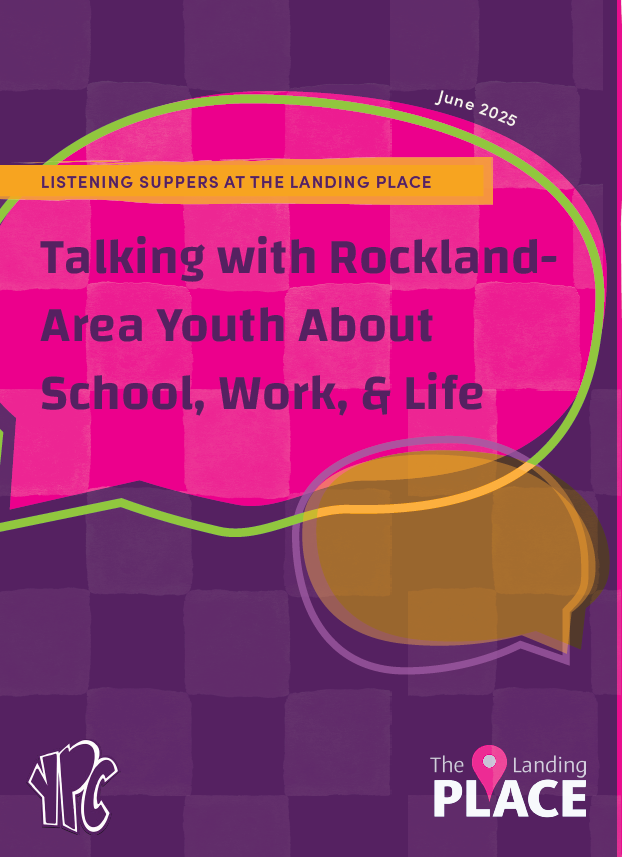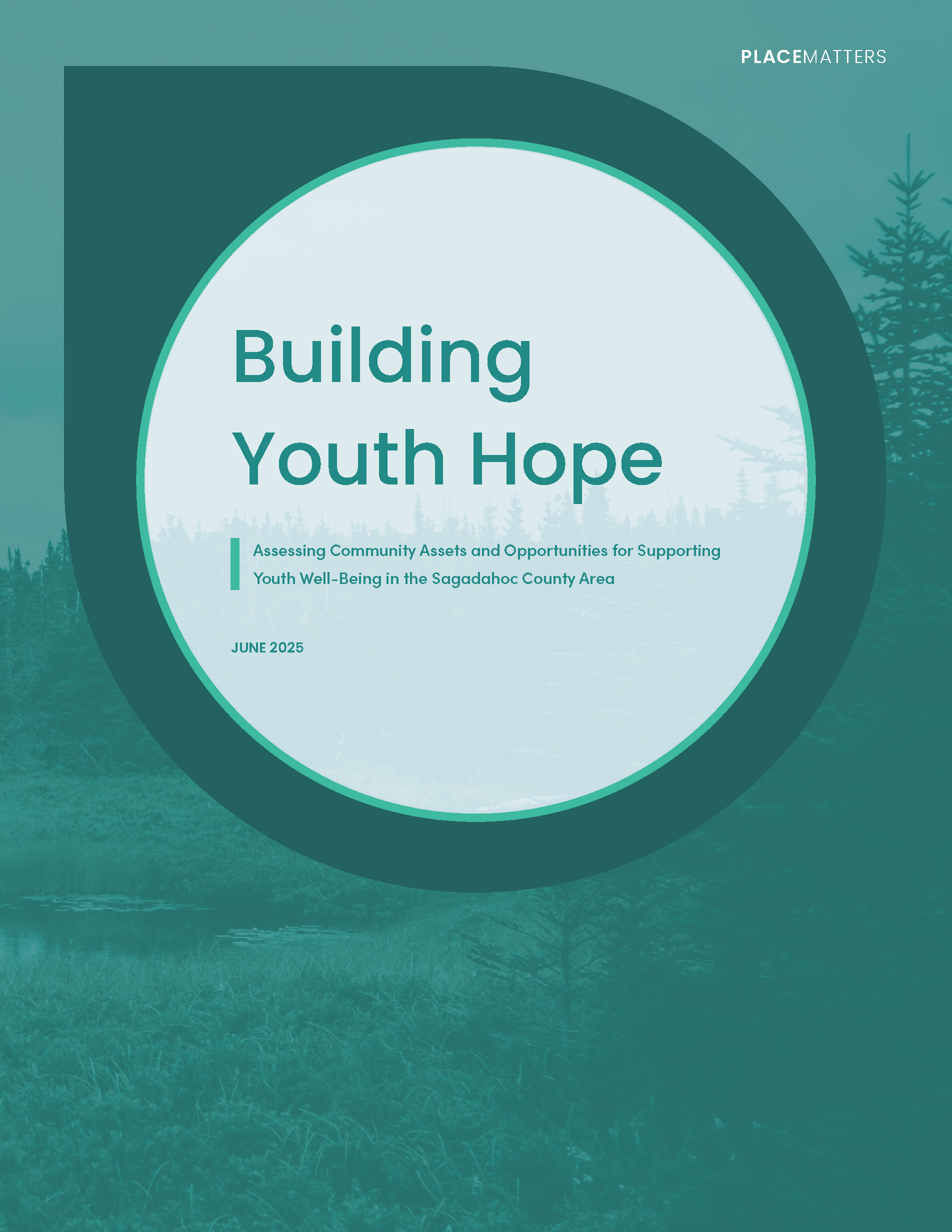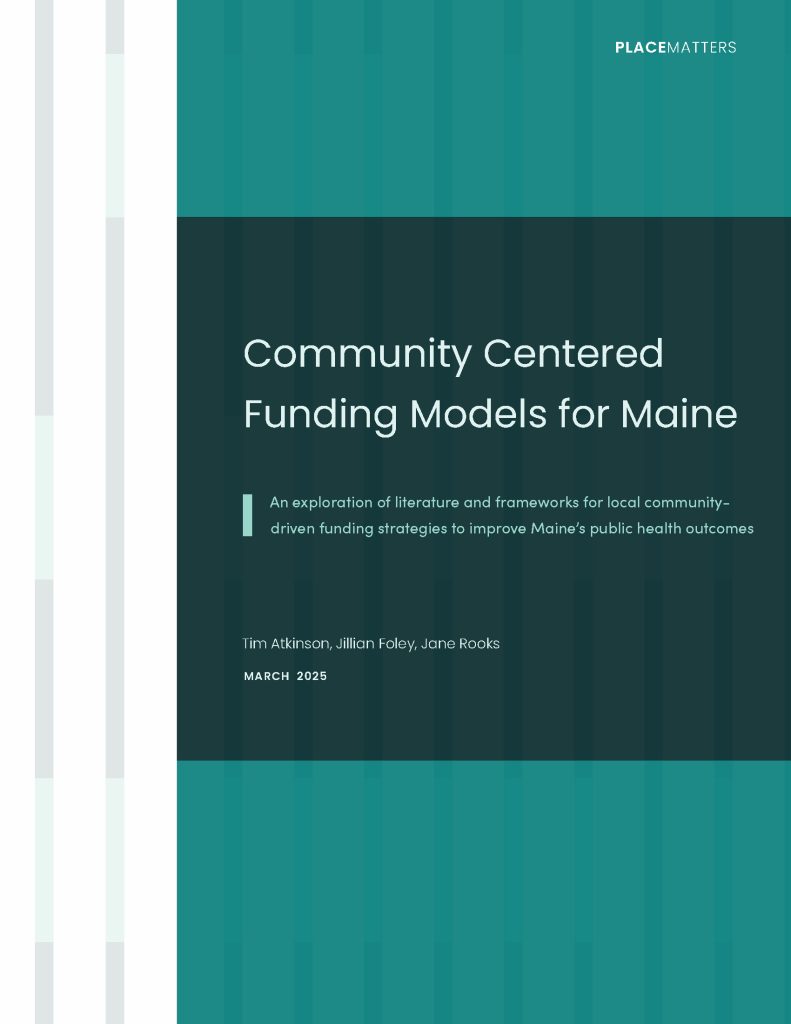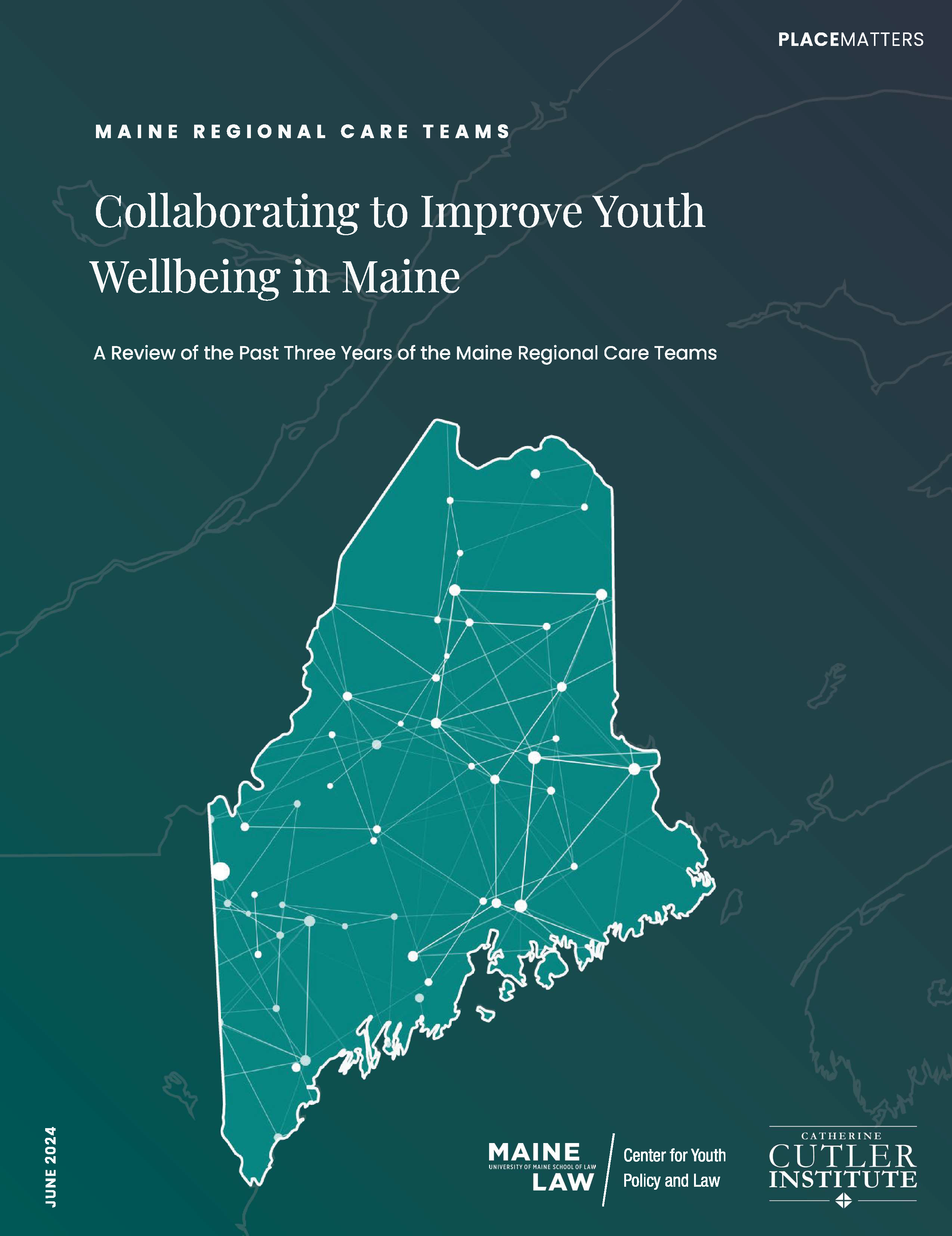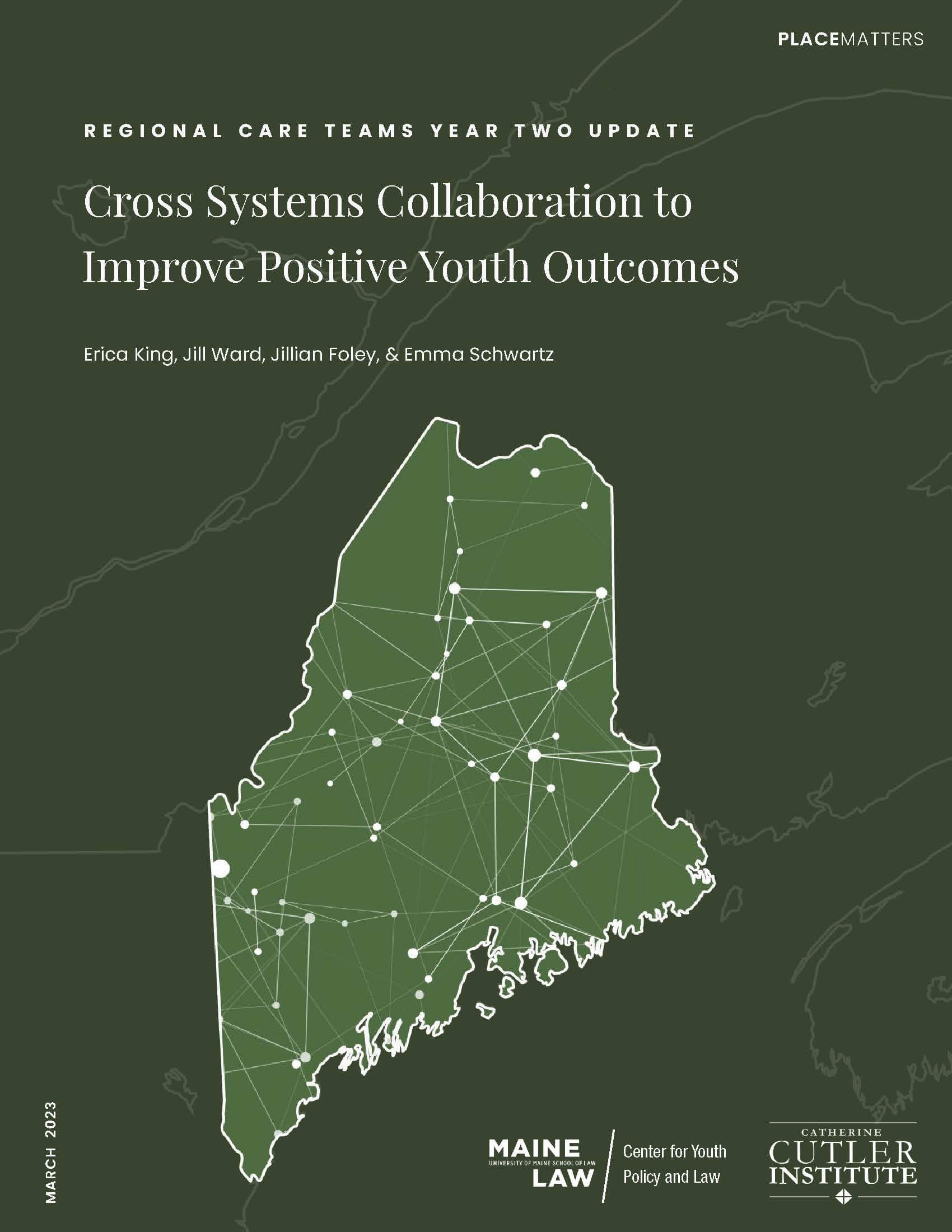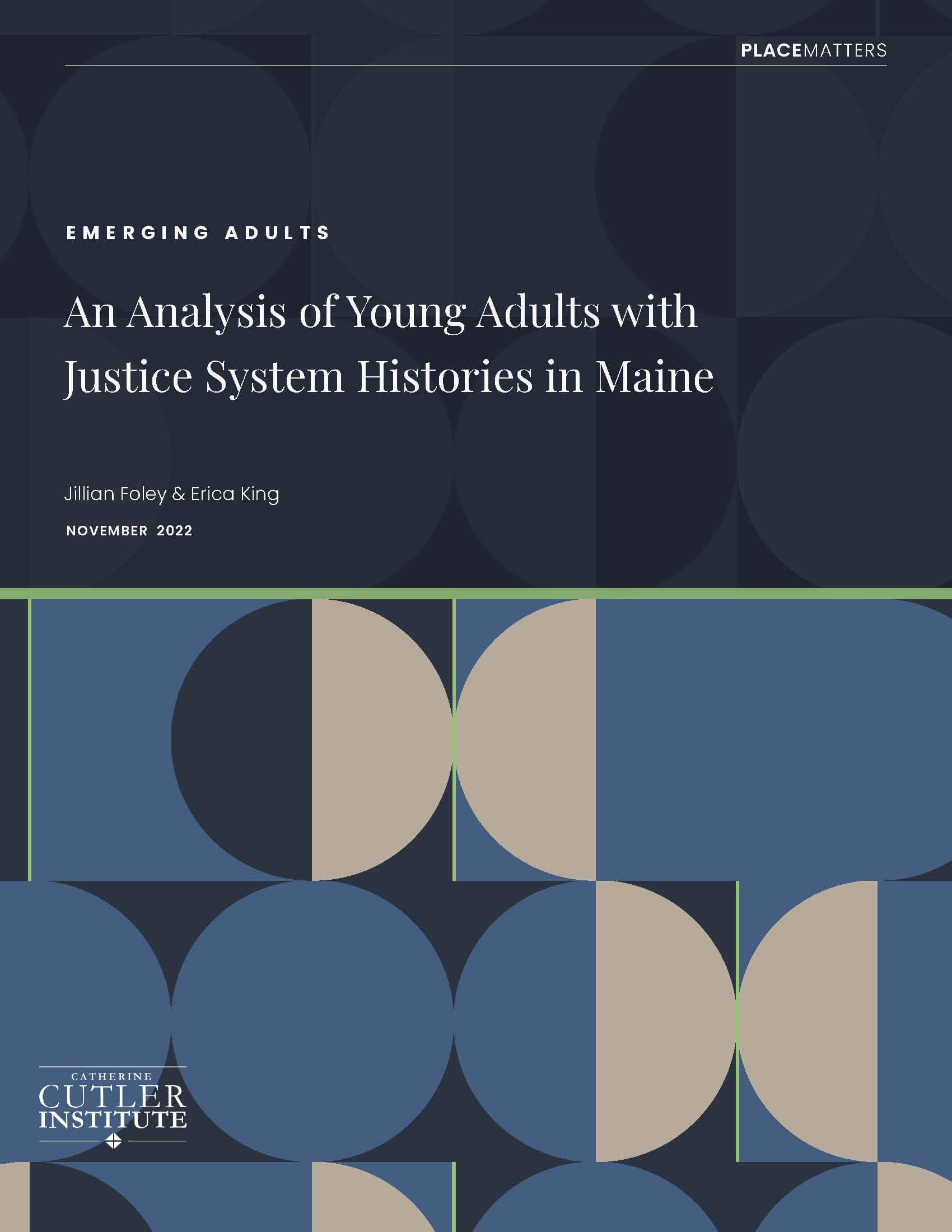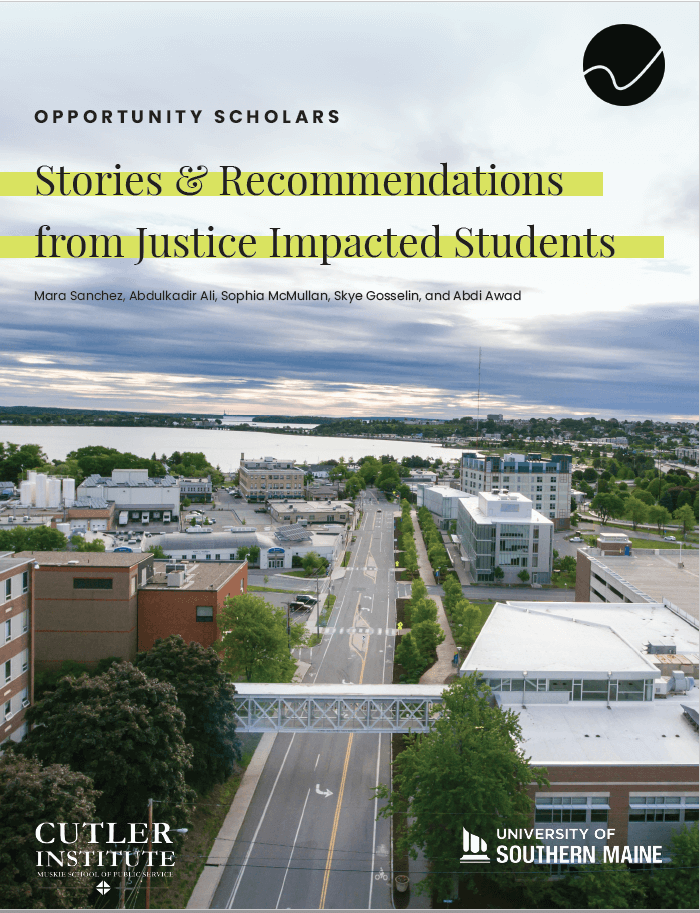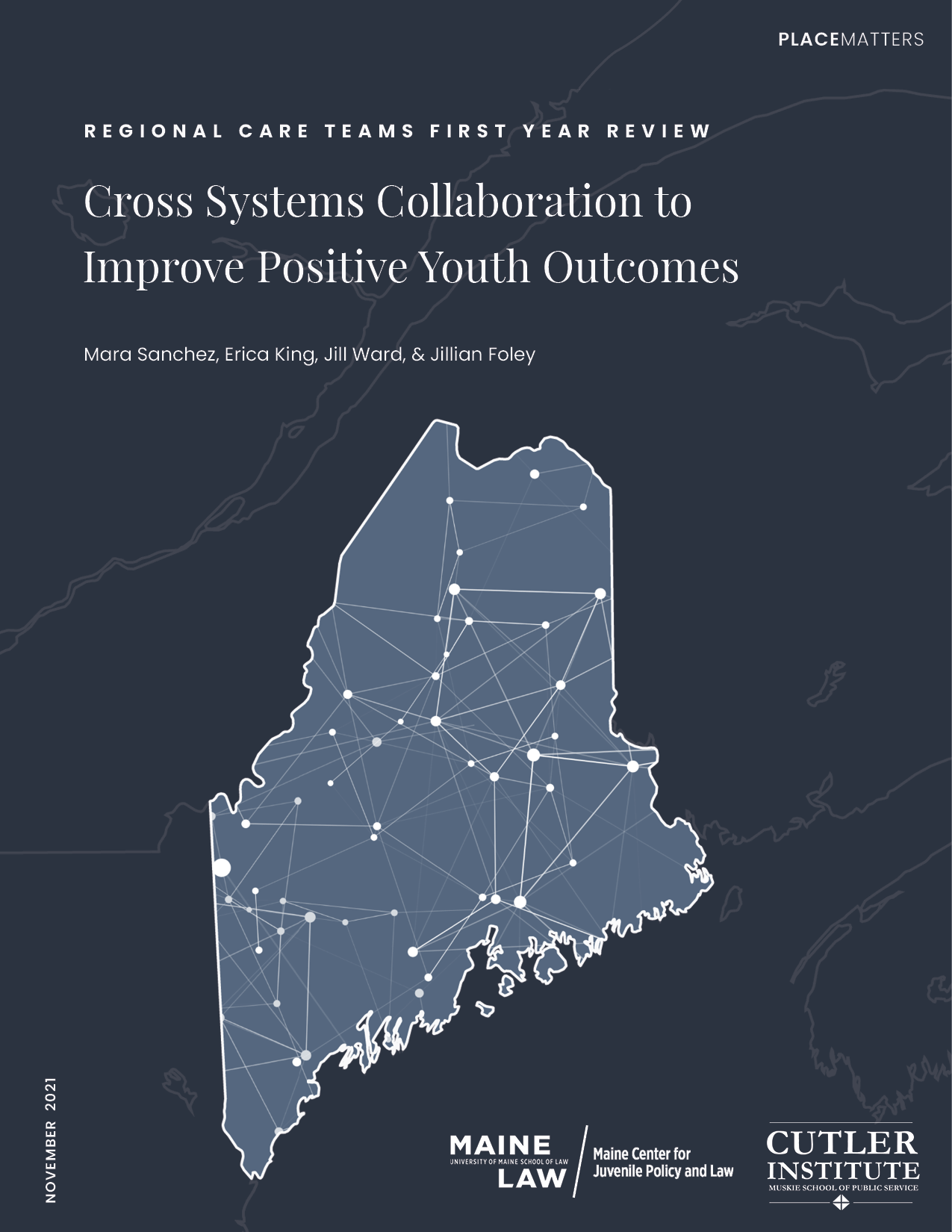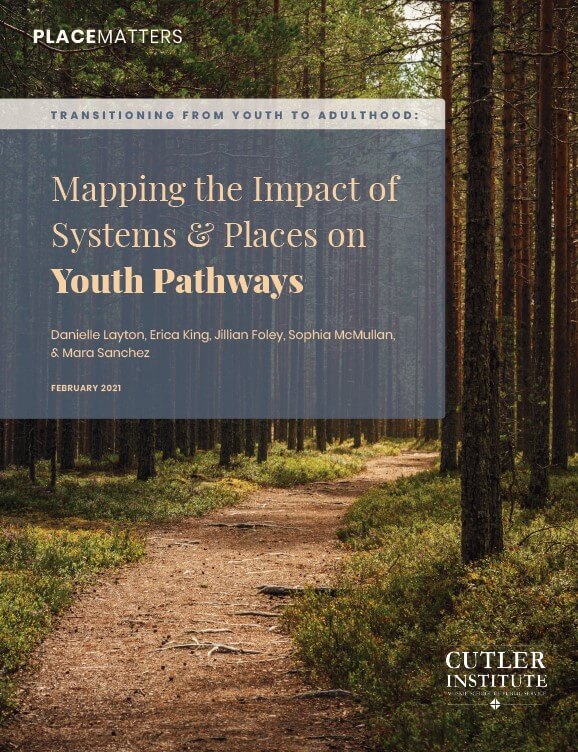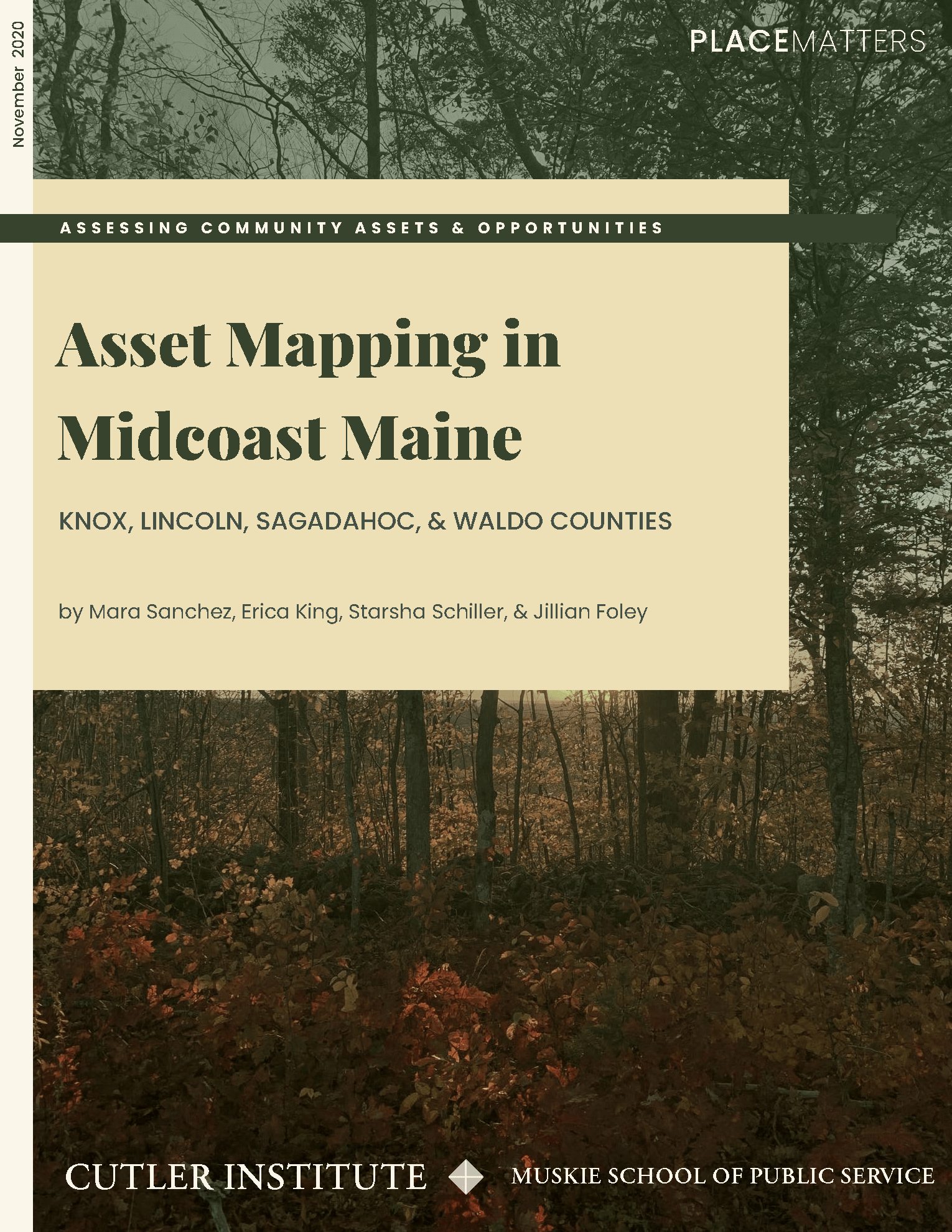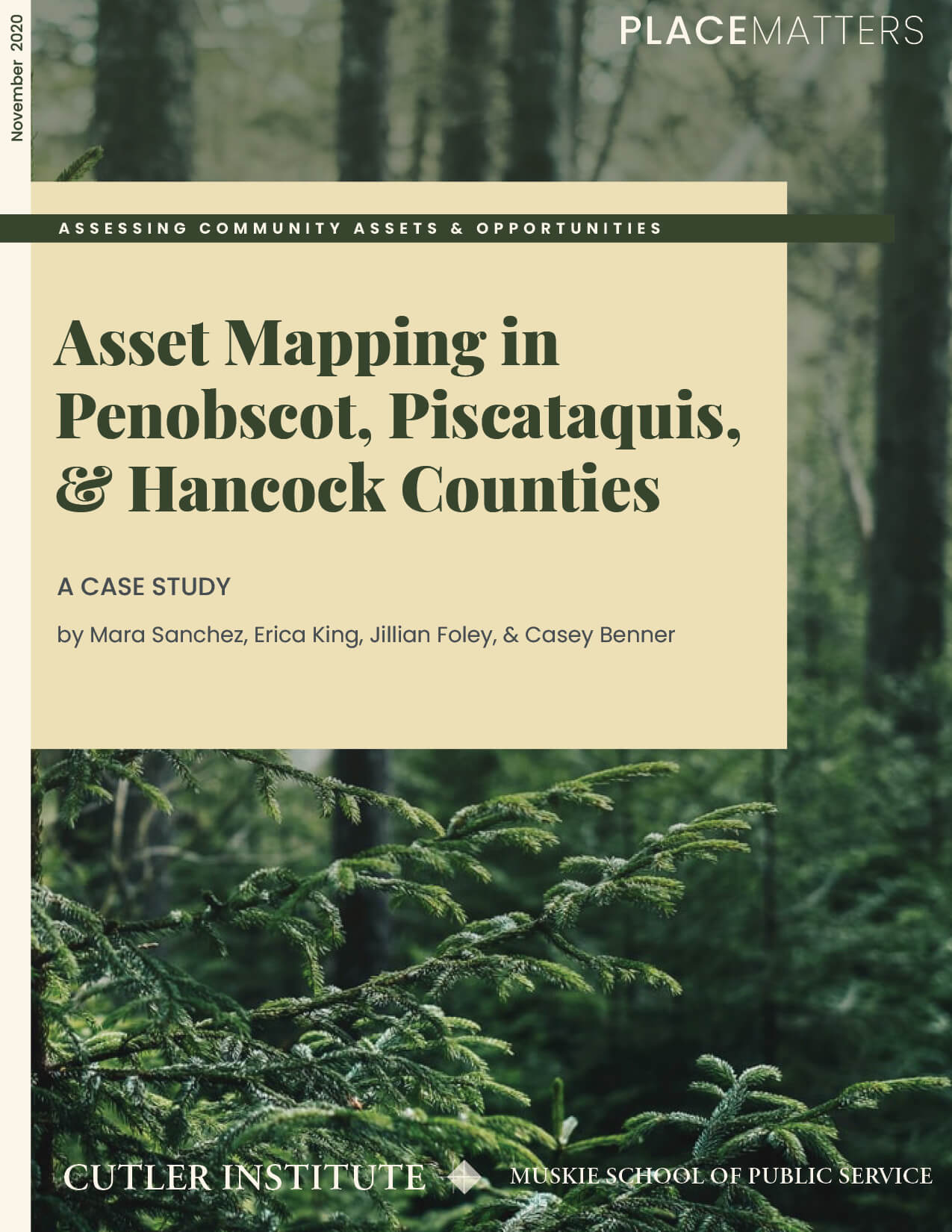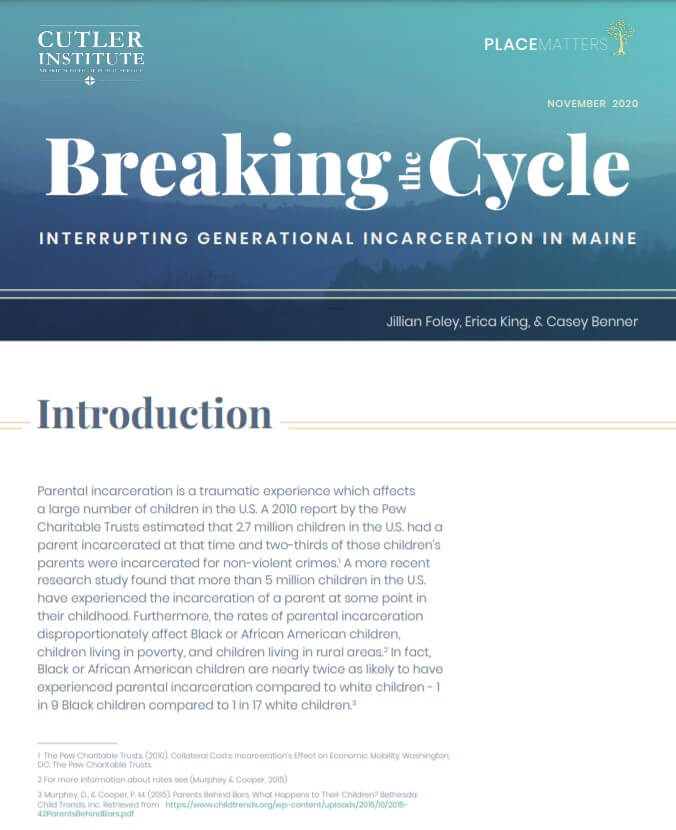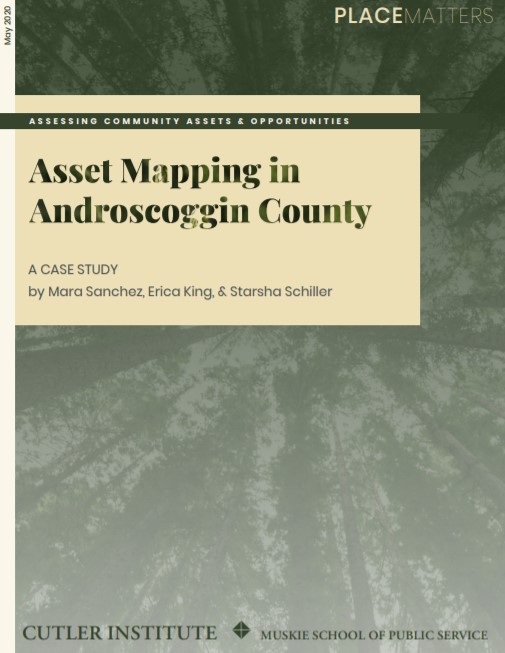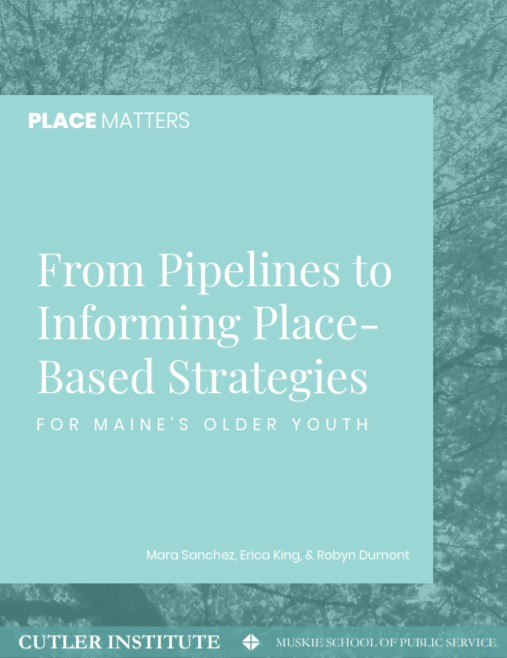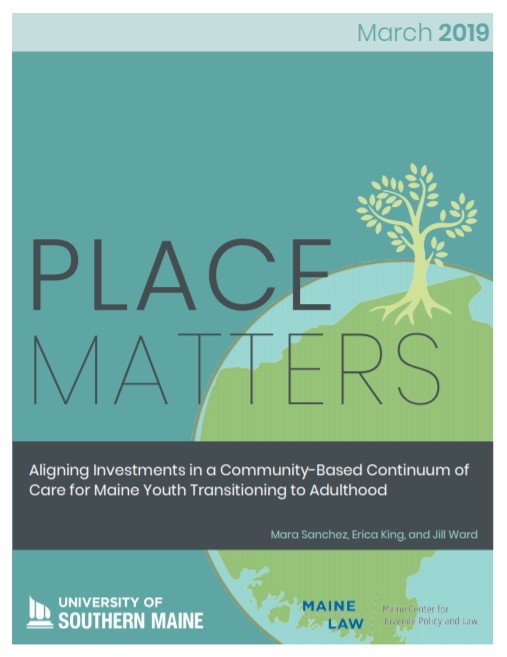Research & Resources
Report Series
Place Matters has produced a series of reports summarizing our research, community engagement and policy recommendations. The reports in this series are intended to inform and support the work of policy makers and community members dedicated to improving outcomes for Maine’s youth and families. As our work continues, additional reports and resources will be added to this website.
Listening Suppers At The Landing Place: Talking with Rockland-Area Youth About School, Work, & Life
This piece (June 2025) is a collaboration with our parters at The Landing Place to amplify youth voices and ideas for systems change that came out of a series of conversations with youth in Rockland, called Listening Suppers which aimed to inpsire conversations about school, work, family, community supports, relationships, and more. This short brief highlights the themes that came out of these conversations including community strengths and assets, gaps and youth needs, and youth informed recommendations for change. While much of the conversations were specific to the local Rockland community, the challenges and solutions highlighted are similar to what has been heard from youth in other places statewide.
Building Youth Hope: Assessing Community Assets and Opportunities for Supporting Youth Well-Being in the Sagadahoc County Area
This report (June 2025) aims to build upon previous research and provides updated information on community assets to support youth in the Sagadahoc County area. The report examines the strengths, challenges, and opportunities for community investment with the goal of improving outcomes related to youth hopefulness, belonging, and well-being. The project team engaged community members in a variety of asset mapping and data collection activities which are summarized in this report. The report authors also make recommendations related to expanding youth connections to informal supports and third places, ensuring access to a variety of assets that are responsive to their holistic needs, and continuing to center youth voice in local decision-making.
Community Centered Funding Models for Maine
This report (March 2025) is an exploration of literature and frameworks for local community-driven funding strategies to improve Maine’s public health outcomes. The authors present a number of community-led funding theories such as place-based funding models and participatory grant making, examine lessons learned from recent public health events, and discuss reflections from interviews with key stakeholders. The report looks at examples of community-led models and makes recommendations for next steps such as improving collaborative relationships, strengthening peer-to-peer networks, expanding availability of flexible funding that includes backbone support, and conducting a cost-benefit analysis of collaborative community health capacity investment options.
Maine Regional Care Teams: Collaborating to Improve Youth Wellbeing in Maine
This report (June 2024) provides a look back at the past three years of the Regional Care Team initiative, which helped connect 165 youth to community-based resources in those first three years through a collaborative multi-systems model. The report details the extent of cross-system collaboration that continues as a part of this initiative and summarizes feedback from partners, examines data on youth referrals, their histories of system involvement, and funding. The report recommends next steps to expand prevention, community intervention, and reintegration supports for youth.
What Are We Waiting For? A collection of poems and essays about family, love, loss, time, and hope
This anthology (2024) is a collaboration with the Opportunity Scholars project and the Right/Write to Heal Initiative. The collection tells the stories of women and their families who have been impacted by incarceration in Maine and New York, the pathways that brought them to justice system involvement, and what inspires them to remain hopeful. These stories of family, love, loss, time, and hope were written by residents at the Southern Maine Women’s Reentry Center and the Women’s Center at the Maine Correctional Center, and partners from New York who participated in a weekly creative writing project together. The authors and editors of this anthology hope that these stories will bring awareness to the issues that impact these families and inspire systems change.
Regional Care Teams Year Two Update: Cross Systems Collaboration to Improve Positive Youth Outcomes
This report (March 2023) provides an update of the second year (July 2021 to July 2022) of the Regional Care Team initiative, which started as a response to the COVID-19 pandemic, bringing together youth-serving agencies, systems, organizations, and communities in each MDOC region to support individual system-involved youth and their families and to help inform broader system change. The report details the extent of cross-system collaboration that continues as a part of this initiative, examines data on youth referrals and funding, and makes recommendations.
Emerging Adults: An Analysis of Young Adults with Justice System Histories in Maine
This report (November 2022) examines the population of Maine’s emerging young adults (aged 18 to 24) with histories of involvement with the Maine Department of Corrections. The study analyzed data provided by MDOC in April 2021 and aims to understand the makeup of young adults who have been impacted by Maine’s criminal justice system. This report seeks to inform the development of strategies and opportunities to improve the outcomes of these young people as they transition into adulthood and improve the safety and wellbeing of Maine’s local communities.
Opportunity Scholars: Stories & Recommendations from Justice Impacted Students
This report (June 2022) shares stories gathered from participants in the Opportunity Scholars initiative between 2019 and the present, and reflects on the experiences of the scholars with: exploration of post-secondary options; the application, acceptance, enrollment, and advising process; navigation within the academic community; coursework and course load; skills building and assessment of skill gaps; and, employment and career development. This report seeks to accomplish two goals by sharing this information. The first is to highlight the issues and barriers scholars have faced in their academic and employment journeys; the second is to provide recommendations for the academic community for how to improve academic pathways to success for all students.
Regional Care Teams First Year Review: Cross Systems Collaboration to Improve Positive Youth Outcomes
This report (November 2021) looks at the first year of the Regional Care Team initiative (July 2020 to July 2021), which started as a response to the COVID-19 pandemic, bringing together youth-serving agencies, systems, organizations, and communities in each MDOC region to support individual system-involved youth and their families and to help inform broader system change. The report details the extent of collaboration involved in the design and implementation of the initiative, as well as data and recommendations.
Transitioning From Youth to Adulthood: Mapping the Impact of Systems & Places on Youth Pathways
This report (February 2021) seeks to lift up the voices of Maine’s youth and place their lived experiences with homelessness, educational pushout, child-welfare and juvenile justice system involvement, and interactions with the healthcare system at the center of public discourse and decision making. This study collected life stories from 35 youth (age 14-24) using arts-based narrative inquiry methods to map their journeys from childhood to adulthood. The report offers a deeper look at the firsthand experiences of Maine’s systems-involved youth and recommends creating more opportunities for young people to be involved with decisions made by the organizations and systems that serve them, as well as investments in the continuum of care, and programs and policies that promote belonging and equity.
Assessing Community Assets & Opportunities — A Case Study of Asset Mapping in Knox, Lincoln, Sagadahoc, & Waldo Counties
Assessing Community Assets & Opportunities — A Case Study of Asset Mapping in Penobscot, Piscataquis, & Hancock Counties
Breaking the Cycle: Interrupting Generational Incarceration in Maine
The goal of the fourth report (November 2020) in the series was to further our understanding of the scale of parental incarceration and the impact on the children in Maine. This report provides a snapshot of the number of children who were impacted by parental incarceration in the state system over a 5-year period (2015-2020). The findings show that for the majority of these parents, there is no legal factor prohibiting contact with their children. While more research is needed to better understand the nuances of parental incarceration in Maine, this research supports the implementation of policies and programs to help put Maine families and children first. By ensuring Maine families have access to appropriate services and a community-based network of support we can stop the cycle of intergenerational incarceration and improve outcomes for Maine’s children.
Assessing Community Assets & Opportunities — A Case Study of Asset Mapping in Androscoggin County
The third report (May 2020) in the Place Matters series provides a case study of asset mapping in Maine’s communities. Turning to Androscoggin County as a community in which to pilot this grassroots approach, the report explores existing assets and needs in the county. It looks at how this information can inform investments in a community based continuum of care that is responsive to both population level data as well as the voices of youth and individuals who live and work in that community.
From Pipelines to Informing Place-Based Strategies for Maine’s Older Youth
The second report (January 2020) in this series uses county and state level data to illustrate the structural, placed-based risk factors at play in communities across our state which negatively impact youth outcomes. Building on research that identifies social and economic factors as influential in shaping a young person’s predisposition for both risk and protective patterns of behavior, this report challenges the notion that individual choices drive delinquent or criminal behavior. Rather, key community characteristics have been consistently identified as determinants of youth vulnerability, risky behavior, and poor outcomes. Examples of these community level determinants include concentrated poverty, housing stability, school quality, and social capital.
Aligning Investments in a Community-Based Continuum of Care for Maine Youth Transitioning to Adulthood
The first report (March 2019) in this series examines the influence of place on our developmental experiences, and how the resources and supports we have access to shape our pathways into adulthood. Citing national research and state level statics, this report highlights how Maine’s transition-aged, systems-involved youth are negatively impacted by inconsistently available community-based interventions and supports, particularly in rural areas. It further argues that these gaps in services are exacerbated by state reductions in services and fluctuating government contributions to the social safety net, leaving many of our most vulnerable young people without the support they need to thrive in their communities.
